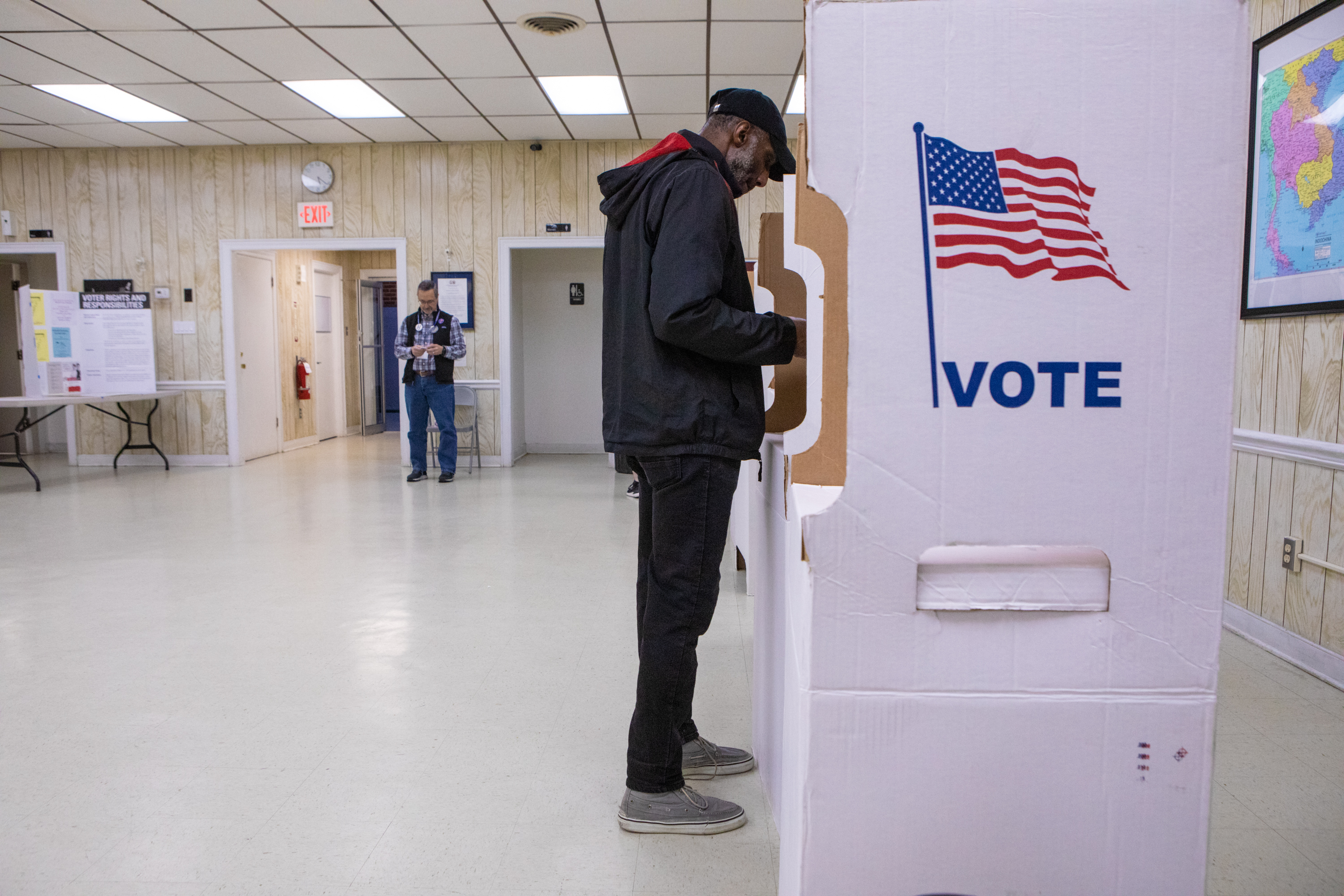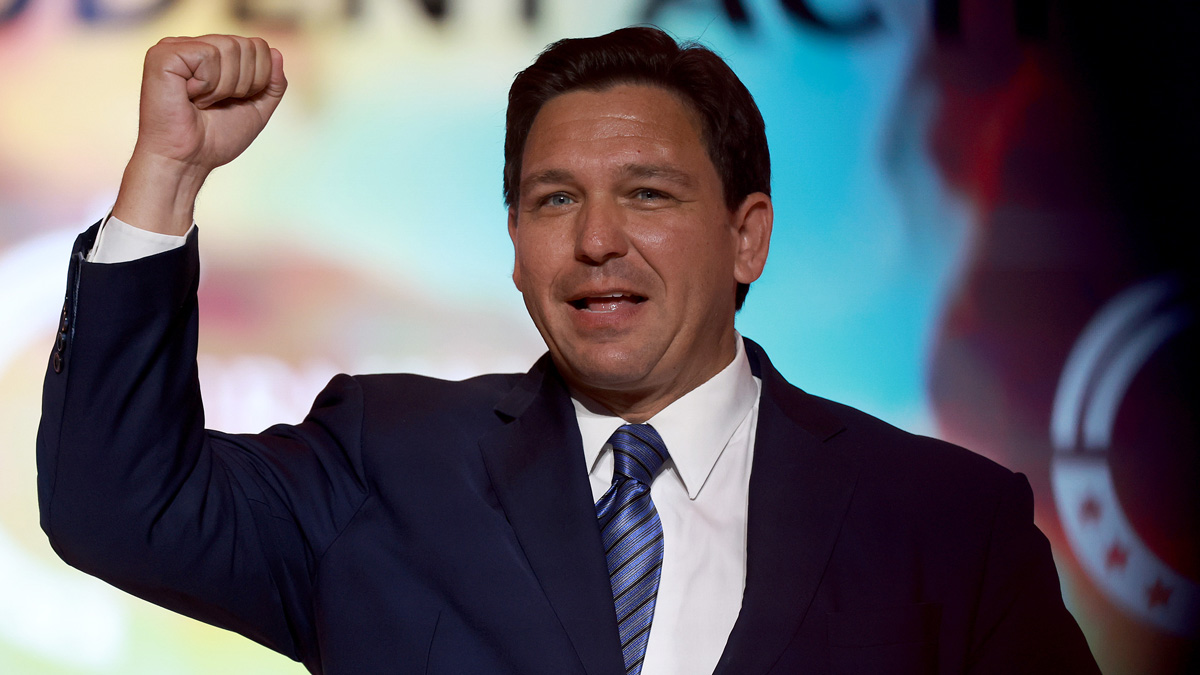Georgia Republican Gov. Brian Kemp is the projected winner in the state's gubernatorial race, defeating Democratic challenger Stacey Abrams in the electoral rematch of the last governor’s race.
Abrams called Kemp to concede, according to his campaign, and went on stage minutes later to congratulate the governor.
“I may no longer be seeking the office of governor, but I will never stop doing everything in my power to ensure the people of Georgia have a voice,” she said.
Kemp, who was a developer before serving as a state senator and secretary of state, clinched another term despite attacks from former President Donald Trump that threatened to snuff out support in his own party.
“Well, it looks like the reports of my political death have been greatly exaggerated,” Kemp told supporters after Abrams' concession.
Kemp, 59, seemed on shaky ground among Republicans after the 2020 presidential election, when Trump blamed him for not doing enough to overturn President Joe Biden's narrow win in Georgia. Trump helped lure former U.S. Sen. David Perdue into a primary challenge to Kemp, whom he called a “complete and total failure”.
But Kemp motored away from Perdue during the GOP primary, winning nearly 74% of the vote. Kemp patiently explained his election actions to Republicans even as he used his office to sign conservative-pleasing bills loosening gun laws, cutting taxes and banning “divisive concepts” in schools.
While many incumbents are weakened by serious primary challenges, Kemp appeared to be strengthened. Trump's attacks gave Kemp credibility with the narrow margin of Georgia voters who are willing to consider voting for either party, a largely white, college educated and suburban demographic.
Abrams, though, spent the four years since her defeat methodically laying the groundwork for another run. She formed a forceful voting rights advocacy group — Fair Fight Action — and built her own personal wealth as Democrats gobbled up her books and paid to attend her speeches.
Feeling out of the loop? We'll catch you up on the Chicago news you need to know. Sign up for the weekly> Chicago Catch-Up newsletter.
Her national profile was so high that she was considered as a possible running mate for Biden or even a candidate for president herself. That helped Abrams outraise Kemp with the help of a state law that allows candidates for governor to accept unlimited contributions through an associated committee.
Abrams raised $85 million through Sept. 30, but even Kemp's $60 million would have by far been a record for a governor's race in Georgia, as he sought to build a national fundraising base. And Abrams' financial advantage was never enough to run away with the race — Kemp has led in polls throughout
Abrams, 48, rolled out a campaign that she once described as “rife with plans," including a big pay raise for teachers, legalizing casino and sports gambling to pay for more college aid, expanding Medicaid health insurance, aiding small and minority-owned businesses, and making housing more affordable. At the same time, Abrams pledged to tighten Georgia's gun laws and roll back abortion restrictions, arguing Kemp was far from moderate.
"The most dangerous thing facing Georgia is four more years of Brian Kemp," Abrams said in an Oct. 17 debate.
Only 1 in 10 Georgia voters identify the U.S. Supreme Court’s decision to strip women of the constitutional right to an abortion as the most important issue facing the country, according to AP VoteCast, an expansive survey of more than 3,000 voters in the state, while almost 5 in 10 identify the economy and jobs.
But abortion still weighs on how many people voted. About 7 in 10 Georgians say it is an important factor in how they voted.
Kemp highlighted his stewardship of the state economy and his decision to relax public restrictions early in the COVID-19 pandemic.
Decision 2022 Coverage:
He also gave billions in tax breaks and handouts using federal and state money. Kemp pushed laws to suspend the state gas tax, give $1 billion of state income tax refunds and even give $350 to every person in the state on public assistance. He also pledged another income tax break and a property tax break if reelected, portraying the cash as helping Georgians “fight through 40-year-high inflation and high gas prices” that he blamed on Biden, Abrams and other Democrats.
Kemp launched frequent attacks on Abrams, accusing her of not supporting police. He also called her “celebrity Stacey,” saying she would serve out-of-state interest and not “hardworking Georgians.”
Associated Press writer Amanda Seitz contributed from Washington, D.C.




